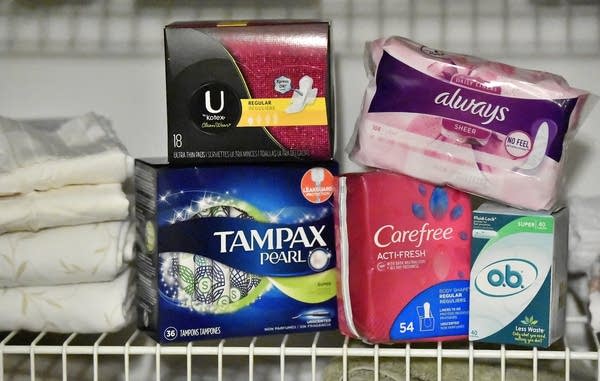'Cannot learn while we are leaking': Bill seeks free period products at school

Go Deeper.
Create an account or log in to save stories.
Like this?
Thanks for liking this story! We have added it to a list of your favorite stories.
Minnesota lawmakers are trying once again to require school districts to provide free menstrual products to students.
Last year, led by an initiative from Minnesota students, House Democrats introduced a similar bill. Advocates say access to the products would help keep students from having to miss class when they can’t afford products.
The proposal received a review in a house education committee earlier this week. This year, with Democratic control of the House and Senate, there’s renewed hope the bill might progress.
Multiple students from early high school to college spoke about menstrual equity to the committee. They compared menstrual products to soap and toilet paper, both readily available, free products in school bathrooms.
Turn Up Your Support
MPR News helps you turn down the noise and build shared understanding. Turn up your support for this public resource and keep trusted journalism accessible to all.
“We cannot learn while we are leaking,” said Elif Ozturk of Hopkins High School. “I thought to myself, ‘how is this fair?’ How do we expect our students to carry this burden with them during the school day and still perform well? The number one priority should be to learn, not to find a pad.”
Maarit Mattson, who said she is a student at Mankato East High School, said that nobody should have to worry about access to products.
“Every menstruating individual knows that feeling to be caught off guard when you don’t have the supplies you need, but this doesn’t have to be the reality in our schools,” she said.
The proposed bill requires schools to stock their restrooms with menstrual products for students in fourth through 12th grade at the cost of about $2 per pupil per budget year — a cost to the state of $2 million total.
Supporters say it is a relatively small amount of money compared to the costs of helping students make up for lost class time.


